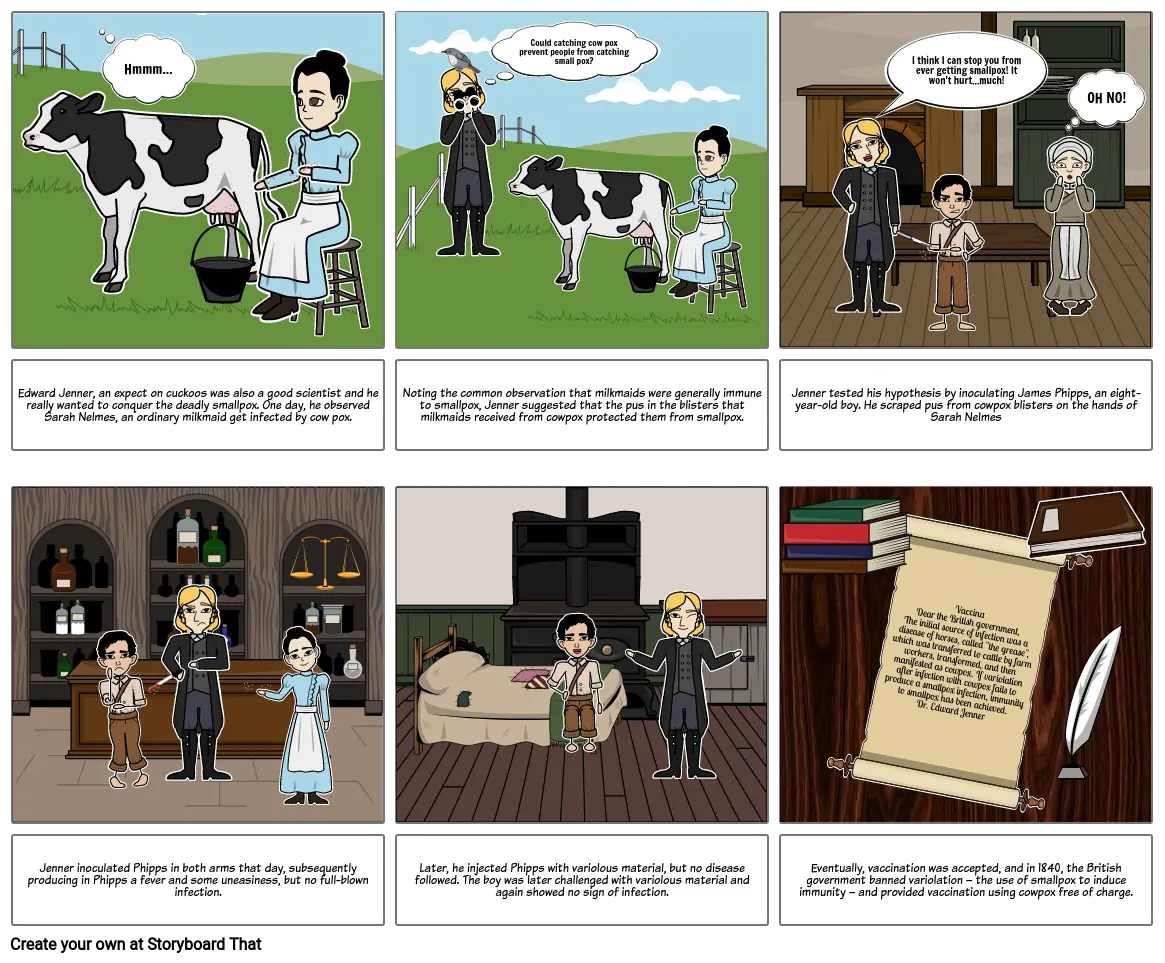The Discovery of Vaccines

Storyboard Description
The Discovery of Vaccines by Zaqee Rakhda
year 8 school project
Storyboard Text
- Hmmm...
- Could catching cow pox prevent people from catching small pox?
- I think I can stop you from ever getting smallpox! It won't hurt...much!
- OH NO!
- Edward Jenner, an expect on cuckoos was also a good scientist and he really wanted to conquer the deadly smallpox. One day, he observed Sarah Nelmes, an ordinary milkmaid get infected by cow pox.
- Noting the common observation that milkmaids were generally immune to smallpox, Jenner suggested that the pus in the blisters that milkmaids received from cowpox protected them from smallpox.
- Jenner tested his hypothesis by inoculating James Phipps, an eight-year-old boy. He scraped pus from cowpox blisters on the hands of Sarah Nelmes
- VaccinaDear the British government,The initial source of infection was a disease of horses, called "the grease", which was transferred to cattle by farm workers, transformed, and then manifested as cowpox. If variolation after infection with cowpox fails to produce a smallpox infection, immunity to smallpox has been achieved.Dr. Edward Jenner
- Jenner inoculated Phipps in both arms that day, subsequently producing in Phipps a fever and some uneasiness, but no full-blown infection.
- Later, he injected Phipps with variolous material, but no disease followed. The boy was later challenged with variolous material and again showed no sign of infection.
- Eventually, vaccination was accepted, and in 1840, the British government banned variolation – the use of smallpox to induce immunity – and provided vaccination using cowpox free of charge.
Over 30 Million Storyboards Created

